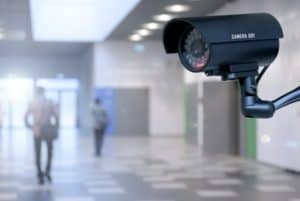
Inadequate Security Lawyers in Arlington, TX – Serving the DFW Metroplex
Commercial and rented properties such as malls, hotels, and apartment buildings are required by law to offer adequate security for the people who work, live, or shop there. When there is no security provided or the security is insufficient, it can lead to someone falling victim to a crime.
If you have been a victim of a crime due to inadequate security around a public building or rented property, contact the personal injury attorneys at Branch & Dhillon, P.C. We’ll make sure that you get the compensation you deserve for medical expenses and other damages. Contact us today to schedule a free consultation for your negligent security case.
Negligent Security Overview
Negligent security applies to cases where a criminal attack occurred on a commercial or rented private property. The law requires that sufficient security is in place to ensure the safety of the patrons or residents who live or frequent these areas.
Owners of commercial buildings and rental residences are also required to be aware of what is going on in the community. This will help them and their residents prepare for a potential threat of an attack or crime. In addition, property owners must ensure that their security measures are well maintained and adequate enough to prevent crime on their property. If a property owner provides inadequate security and someone else gets hurt due to a crime or accident, then they may be liable for the damages caused by the incident.
Landowner Negligent Security Cases
Commercial property owners and rental property owners have a duty to protect those on their property. While third-party attacks cannot always be predicted or stopped, they can often be prevented with proper security measures, such as hiring a security guard. Properties required to provide adequate security include:
- Hotels and Motels
- Bars and Nightclubs
- Public Parking Lots and Garages
- Shopping Centers
- Office Buildings
- Apartment Complexes
- Service Stations
Foreseeability
 Foreseeability is an important element in inadequate security cases. This pertains to cases where a person under ordinary cautiousness could have reasonably foreseen and defended against a criminal act. Most states, such as Texas, follow these guidelines when determining whether or not a crime could have been foreseeable:
Foreseeability is an important element in inadequate security cases. This pertains to cases where a person under ordinary cautiousness could have reasonably foreseen and defended against a criminal act. Most states, such as Texas, follow these guidelines when determining whether or not a crime could have been foreseeable:
Imminent Harm
When proving imminent harm, the evidence must show that the property owner knew – or should have known – that a particular crime was likely to take place. This could be based on prior incidences of the criminal act in the neighborhood or a warning about the action beforehand.
For example, if an apartment owner receives a letter stating that someone is going to attack one of his residents, the apartment owner has to provide a warning and increased security for the complex. Regardless of whether the attack happens or not, the apartment owner is still required by law to post extra security because they are aware of the threat. If they breach their duty and a resident gets hurt, then the apartment owner could be held liable for the damages.
Prior Incidents
If an area has seen a high incidence of a crime – such as gang activity or burglary – then it may be reasonable to assume that an incident will happen on a property owner’s premises as well.
For example, a mall is located in an area that is seeing an increase in car break-ins. The commercial property owner is then required by law to post security cameras or security guards in the parking lot to protect the property and lives of their patrons. If the commercial property owner fails in this duty, they may be held liable for any damages that occur due to a car break-in or attack to the owner of the vehicle.
Reasonable Security Measures
Commercial property owners and rental property owners owe a duty to keep their patrons safe from criminal attacks. The property owner must provide sufficient security that decreases the risk of an individual becoming a victim of a violent crime while on the property. Here are some of the security measures that are considered adequate under the law:
- Hiring a qualified security service
- Installing security cameras
- Actively monitoring security cameras
- Creating and distributing to patrons a security plan
- Having working locks on doors, windows, and gates
- Installing an intercom system or text/email system to alert patrons of potential dangers
- Developing building access control measures, such as door codes or gate codes
- Having a one-use hotel room key cards
- Installing ATM panic buttons
- Placing emergency buttons/centers in parking lots
The Balancing Test
 The balancing test refers to a court’s system judgment on whether or not appropriate measures were taken to prevent a crime. The balance test weights the likelihood of the attack against the potential harm. It also takes into account the burden imposed on the property owner to provide security measures to prevent a potential crime.
The balancing test refers to a court’s system judgment on whether or not appropriate measures were taken to prevent a crime. The balance test weights the likelihood of the attack against the potential harm. It also takes into account the burden imposed on the property owner to provide security measures to prevent a potential crime.
For example, if there have been numerous break-ins in a residential area near an apartment complex, it is the property owner’s responsibility to warn their residents about this fact. However, despite having a gated community and sending out a cautionary email about the potential danger, one of his residents has their home broken into.
The likelihood of the break-in was high, due to previous indications that there was heightened crime activity in the area. The property owner’s response – sending out an email warning and supplying the gate for the community – was the response to the potential threat. In a court of law, the property owner may not be held liable for damages resulting from the attack because he acted within his duties without placing an unnecessary burden upon himself or his finances.
Negligent Security Compensation
Compensation for negligent security is based on a number of different factors. Courts will look at the damages caused by the crime, medical records, and the police report. Once this is all taken into account, the damages they award may include:
- Medical Expenses
- Lost Wages
- Loss of Future Wages
- Pain and Suffering
- Mental Anguish
- Funeral Expenses
Contact Our Negligent Security Lawyers in Texas
If you or a loved one has been the victim of an act that could have been prevented by stronger security measures, you need the attorneys at Branch & Dhillon, P.C. by your side. We work hard to provide supporting evidence, witness testimony, and expert opinions to prove that the property owner’s inadequate security caused your injuries.
Branch & Dhillon, P.C. ensures that there is no risk involved in seeking to get your life back on track. We offer free, non-obligatory consultations as well as a no-win, no-fee contract. Branch & Dhillon, P.C. is dedicated to putting our clients first. Rely on the team that looks out for you and fights for the compensation you deserve. Contact us today.

